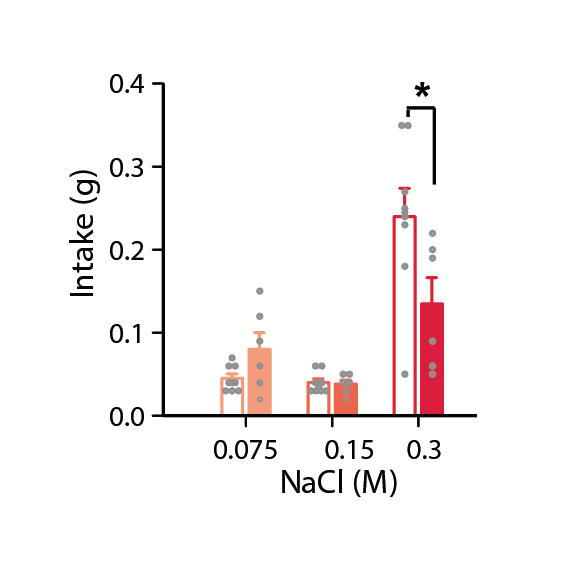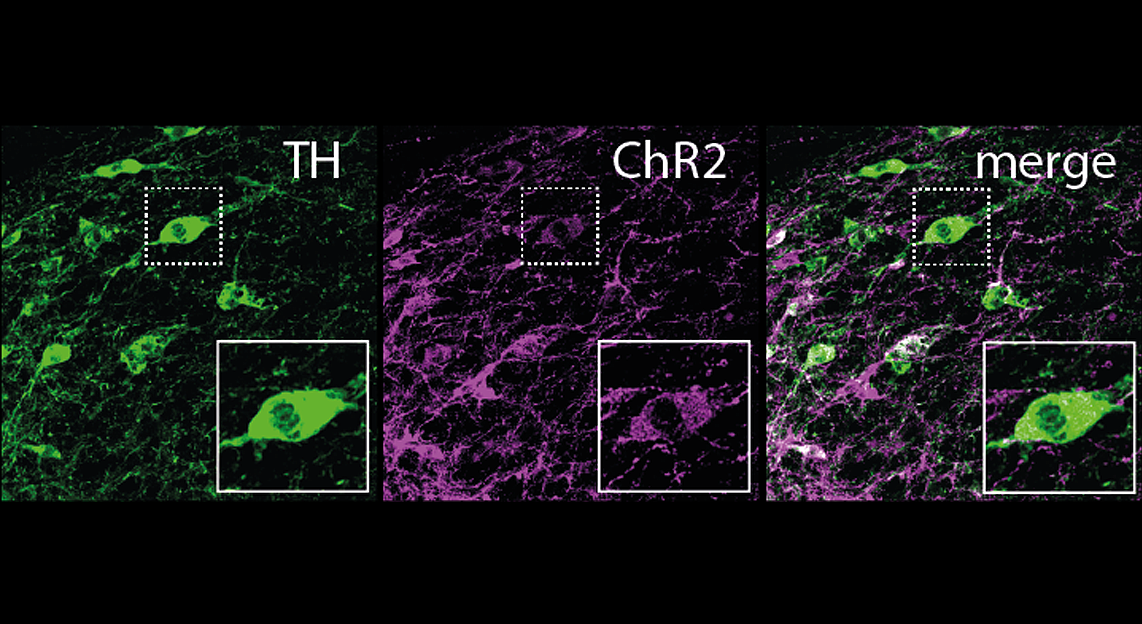By Sophie Arthur
April 30, 2018
Time to read: 2 minutes
Salt is an essential nutrient, but high levels of dietary salt are associated with adverse health effects, such as hypertension. Despite salt intake being a health concern, little is known about the neural systems in the brain that control salt intake.

Research published in eNeuro by Dr Mark Ungless, Senior Lecturer at the Institute of Clinical Sciences, Imperial College London, and Professor Dominic Withers, Head of Metabolic Signalling at MRC LMS, has shown that stimulating dopamine neurons in the midbrain reduces salt intake.
The researchers tested the effect of selectively stimulating dopamine neurons on salt intake by using: optogenetics, to excite dopamine neurons, and chemogenetics, to inhibit them (two techniques discussed in our recent article: Shining a light on metabolic signalling research).
The paper builds upon a body of literature showing that dopamine neuron stimulation leads to decreased sugar intake, suggesting that dopamine neuron stimulation may broadly effect different types of appetite.
Dr Ungless says that “while there are no immediate clinical implications of this work, because of the challenges of stimulating dopamine neurons in humans, we hope that by further understanding how dopamine regulates appetite we might contribute towards future development of new therapeutics to regulate salt intake.”

All the researchers involved with this research are based at MRC LMS and Imperial Institute of Clinical Sciences, illustrating how we can link discovery science and medicine to drive innovation and health.